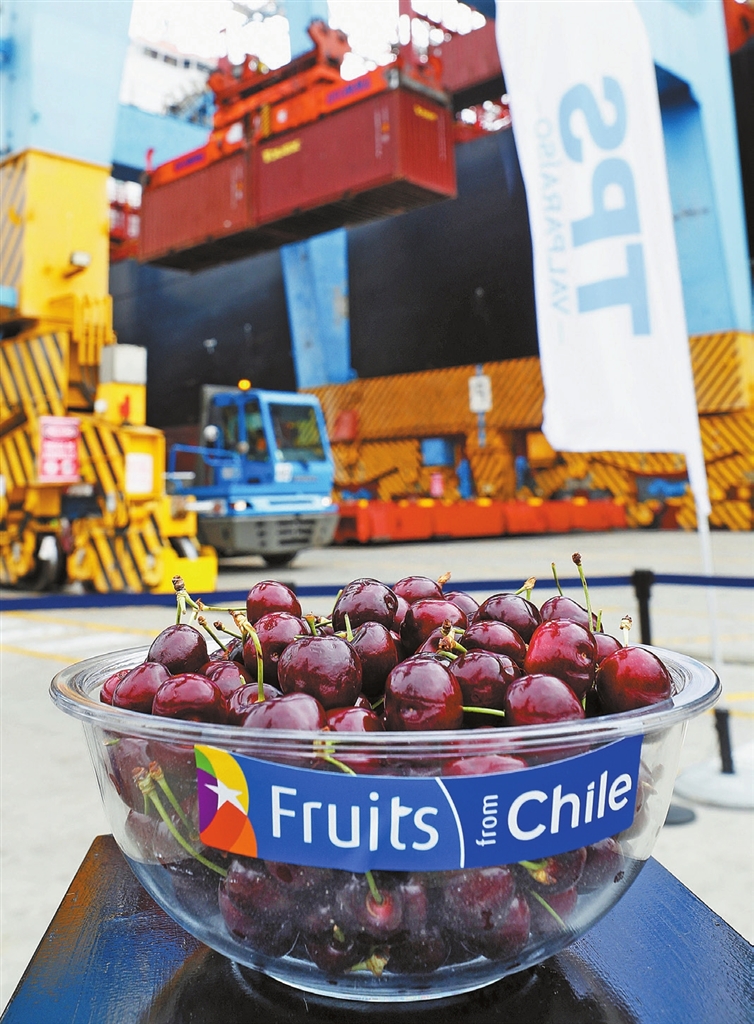
FOLLOWING in the footsteps of China’s Hong Kong and Sri Lanka, Chile recently applied to join the Regional Comprehensive Economic Partnership (RCEP), the China Daily reported yesterday. The RCEP is a free trade agreement that has created the world’s largest trading bloc, including China, Australia, Japan, New Zealand, South Korea and the 10 member states of the Association of Southeast Asian Nations. This pact, signed via teleconference on Nov. 15, 2020, by 15 Asia-Pacific nations, represents nearly a third of the global gross domestic product (GDP). Claudia Sanhueza Riveros, Chilean undersecretary for international economic relations, handed over the formal letter of application for the country’s accession to the RCEP in mid-June, according to a statement released by the Ministry of Foreign Affairs of Chile. If successful, Chile will become the first Latin American nation to join the RCEP, according to Xu Ningning, chairman of the RCEP Industry Cooperation Committee. Xu stressed that Chile, which is pursuing an open and free market economy, had always sought to diversify its export markets and attract foreign investment through trade deals. Chile has negotiated 33 trade agreements, covering 65 economies, representing 88% of the world’s GDP, data from the U.S.-based International Trade Administration showed. Chile’s membership of the Comprehensive and Progressive Agreement for Trans-Pacific Partnership and its existing free trade agreements with RCEP member nations such as China, Japan, South Korea and Australia, have fostered a favorable climate for its accession to the RCEP, Xu was quoted by the China Daily as saying. The value of merchandise exports from Chile totaled about US$94 billion in 2023, with China, the United States, Japan and South Korea as its top export destinations, according to official data. China, Japan and South Korea have emerged as significant trading partners and key sources of foreign direct investment for Chile. By seeking to join the RCEP, the South American nation aims to strengthen its trade networks and tap into the vast opportunities offered by ASEAN nations, said Yuan Bo, a researcher at the Chinese Academy of International Trade and Economic Cooperation. Meanwhile, Chile’s inclusion in the RCEP would extend the trade pact’s reach to South America. Additionally, this development could promote connectivity between the RCEP and the CPTPP and also holds potential to drive the future establishment of an Asia-Pacific free trade area, Yuan said. Currently, China stands as Chile’s paramount global trading partner, top export destination, and principal import source, while Chile ranks as China’s third-largest trading partner in Latin America and its primary copper importer. In the exchange between the two nations, China exports machinery, electronics, textiles, steel, and household appliances to Chile, importing copper, lithium, iron ore, pulp, fruits, and wine in return, according to Cui Fan, a professor at the University of International Business and Economics in Beijing. Recent data from the cherry yearbook by iQonsulting revealed that Chile’s cherry exports to China for the 2023-24 season hit 377,000 metric tons, securing a 91.1% market share and solidifying China’s position as the key destination for Chilean cherries. Despite rising protectionism and a global trade slowdown, intraregional trade among member countries of the RCEP soared to US$5.6 trillion in 2023, showing a slight increase compared to the pre-agreement year of 2021, data from the Ministry of Commerce showed. The RCEP region attracted US$234.1 billion in greenfield investments in 2023, marking a substantial growth of 29.8% and more than double the number from 2021, according to the ministry. Bangladesh is in the process of preparing its application. (SD-Agencies) | 
